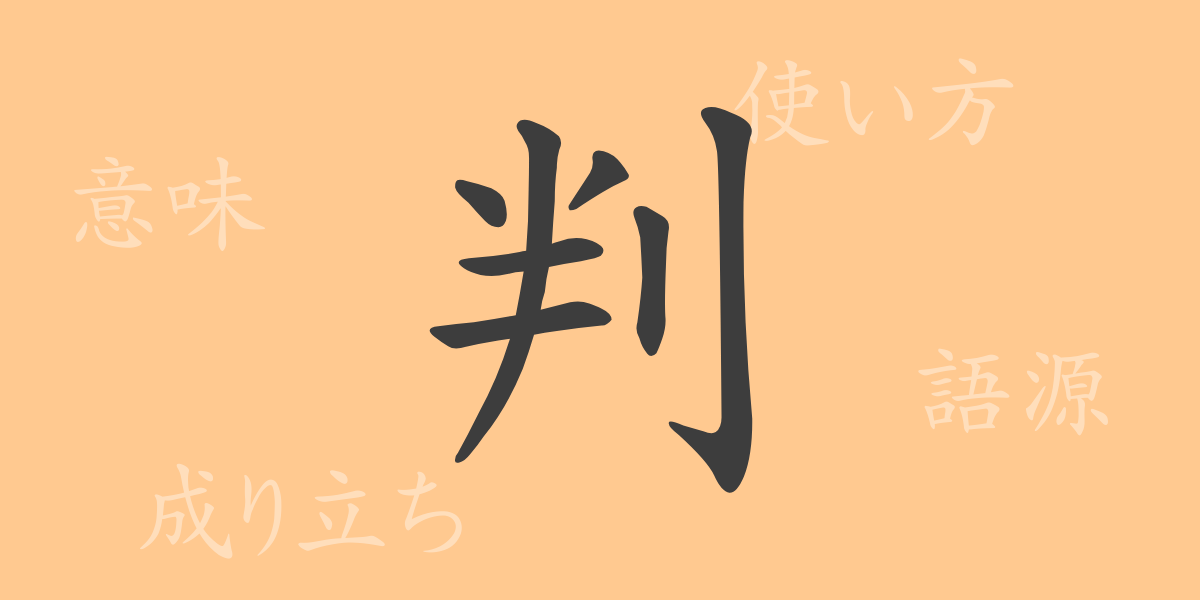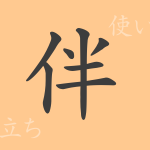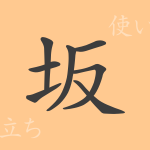In the Japanese language, many kanji are used, but “判” (ハン, わかる, わかれる) is one of the commonly used characters seen in many contexts. The depth of meaning and its role in our daily lives are immeasurable. This article focuses on the kanji “判”, exploring its origins, meanings, usages, and extending to phrases and idioms, delving into its allure.
Origins of 判 (ハン, わかる, わかれる)
The kanji “判” originates from ancient China and is associated with legal terminology. Originally used in words like “判決” (はんけつ, judgment) and “裁判” (さいばん, trial), it signifies the act of judging or distinguishing. Composed of “半” (はん, half) and “刀” (とう, knife), it denotes the act of ‘cutting something in half’, leading to meanings related to dividing or distinguishing things.
Meaning and Usage of 判 (ハン, わかる, わかれる)
“判” primarily means ‘to judge’, ‘to distinguish’, or ‘to clarify’. These meanings are evident in various contexts, such as in court decisions or when determining the correctness of something. In everyday life, it is also used in the form “判る” (わかる) meaning ‘to understand’.
Pronunciation, Stroke Count, and Radical of 判 (ハン, わかる, わかれる)
Basic information about the kanji “判” includes:
- Pronunciation: On-reading is “ハン” (ハン), kun-readings are “わかる” (わかる) and “わかれる” (わかれる).
- Stroke Count: 7 strokes.
- Radical: The radical is “刀” (りっとう).
Phrases and Idioms Using 判 (ハン, わかる, わかれる) and Their Meanings
There are many idioms and phrases that include “判”, which illustrate the richness of Japanese expression. For example, “判を押す” (はんをおす) means to stamp a document, signifying agreement or approval. “一判の土” (いっぱんのつち) is a proverb meaning a very small piece of land. “判官贔屓” (はんがんびいき) refers to the Japanese cultural trait of sympathizing with the underdog or the loser.
Summary on 判 (ハン, わかる, わかれる)
The kanji “判” plays a vital role in the Japanese language due to its extensive usage and the depth of its meanings. Used not only in the legal realm but also in everyday situations for decisions, understanding, and expressions of agreement, this kanji is indispensable in our communication. Moving forward, correctly understanding and using “判” will aid in achieving richer expressions in Japanese.

























